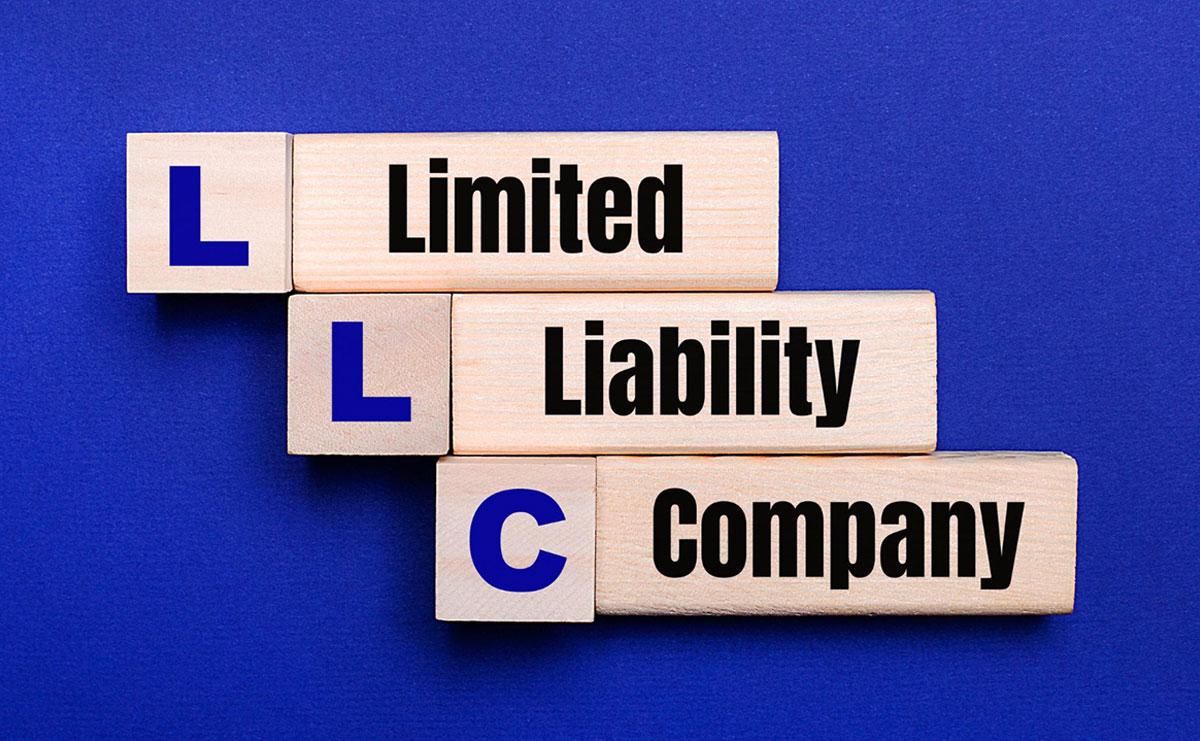Contents
The Ultimate Guide to Starting a Law Firm: LLP vs PC
When someone wishes to establish a company for their business, the first thing they need to do is decide on their company’s form. Some people may find a PC law firm a better choice for the purpose, while others decide between LLP vs LLC. The decision should be made by taking into account all aspects of the business including taxes, liabilities, advantages, and disadvantages of each form of company.
Understanding LLP (Limited Liability Partnership)
LLP Meaning for Law Firms
An LLP meaning law firm refers to a partnership structure tailored for professionals, including attorneys, where partners collaborate to manage the business while maintaining individual liability protection. Unlike general partnerships, an LLP ensures that the personal assets of each partner are safeguarded against the firm’s debts and the actions of other partners. This framework is particularly advantageous in legal practices where partners might work on separate cases but share collective responsibilities for firm operations.
Advantages of an LLP
The LLP structure offers notable benefits for law firms. Partners retain flexibility in decision-making and management without the rigid formalities associated with corporations. Also, LLPs feature pass-through taxation, which means profits are taxed only at the individual level. This reduces the financial complexity often associated with a PC law firm. For firms prioritizing operational ease and partner autonomy, an LLP provides a balanced solution.
Challenges of an LLP
Despite its advantages, LLPs are not without challenges. Tax benefits, while straightforward, may not be as extensive as those offered under a corporate structure. In some jurisdictions, compliance requirements may differ, necessitating specific filings and disclosures. Comparing LLC vs LLP, law firms must weigh the LLP’s professional alignment against the broader flexibility of an LLC to make a decision that suits their practice’s unique needs.

The Basics of PC (Professional Corporation)
What is a PC Law Firm?
A Professional Corporation, or PC law firm, is a legal structure designed for licensed professionals, including attorneys. It allows owners to separate their personal and business liabilities while complying with state regulations governing professional practices. Unlike an LLP, a PC operates with stricter formalities and corporate governance.
Benefits of a PC
One primary advantage of a PC law firm is the liability protection it provides, which shields personal assets from claims against the business. It also offers potential tax benefits, as earnings can sometimes be retained within the corporation to defer taxation. These tax and liability factors are crucial when deciding between LLP vs PC.
Potential Drawbacks of a PC
While a PC provides clear legal advantages, it comes with certain limitations. The rigid structure and required compliance measures can increase administrative responsibilities. In addition, the tax advantages may sometimes outweigh the costs of corporate filings and governance, especially compared to an LLP meaning a law firm, which typically has fewer formalities and operational restrictions.
Comparing LLC vs LLP for Law Firms
Key Similarities
Both an LLC and an LLP provide liability protection to their members or partners, shielding personal assets from most business-related debts or claims. This feature makes them attractive options for law firms looking to limit individual risk. Both structures offer pass-through taxation, allowing profits to be taxed only at the personal level, avoiding double taxation as seen in some corporate structures.
Core Differences
Despite their similarities, LLC vs LLP comparisons often highlight their distinct operational and regulatory differences. An LLC is more commonly used for general businesses, offering flexible management options that are less common in legal practices. In contrast, an LLP is designed specifically for professional firms such as law firms, ensuring that liability protection aligns with the ethical and regulatory standards of the legal industry.
Suitability for Law Firms
Most law firms choose between an LLP and a PC law firm depending on liability, taxation, and operational preferences. An LLP meaning a law firm structure is typically preferred for its flexibility and ease of management. However, firms seeking additional tax benefits or intending to retain earnings within the business may find a PC more advantageous. Understanding the nuances of each structure is essential to making the right decision for your law firm’s future.
Liability Considerations
How LLP Handles Liability
An LLP, or Limited Liability Partnership, is specifically designed to protect individual partners from the personal liabilities arising from another partner’s misconduct or negligence. This is particularly advantageous in a legal practice where each partner’s work is distinct yet connected to the firm’s operations. Under the LLP meaning law firm framework, each partner is only responsible for their professional actions and not those of their colleagues, providing an extra layer of security.
Liability in a PC Law Firm
In a PC law firm, liability protection protects shareholders from personal responsibility for the corporation’s debts or legal issues. However, the protection does not cover professional malpractice, meaning individual attorneys are still accountable for their professional conduct. This structure can help law firms reduce the risks of personal financial loss while maintaining compliance with corporate regulations.
Comparing Liability in LLC vs LLP
Law firm owners should consider the specific protections offered when comparing LLC vs LLP for liability. While both structures shield personal assets, an LLP is more tailored to legal practices, focusing on dividing liability among partners. An LLC, though flexible, may need more detailed provisions for law firms, making it a less common choice in the legal industry. Ultimately, assessing liability protections in the context of the firm’s operations and goals is essential for making an informed decision.
Taxation Dynamics for Law Firms
Tax Benefits of LLP
An LLP provides pass-through taxation, meaning that profits and losses are reported directly on the partners’ tax returns, avoiding corporate taxation. This is a significant advantage under the LLP law firm structure, particularly for small—to medium-sized firms seeking to reduce the administrative burden and financial impact of double taxation. Each partner’s income is taxed based on their share of the profits, making the structure equitable and efficient.
PC Tax Structure
A PC law firm operates under a corporate tax framework, which can result in double taxation: once at the corporate level and again when profits are distributed as dividends. However, corporations can retain earnings within the business, allowing for potential tax deferral. This feature makes a PC advantageous for firms planning significant reinvestments or those with higher income thresholds despite the stricter tax compliance requirements.
Comparing Taxation in LLC vs LLP
The choice between LLC vs LLP for taxation depends on the firm’s financial goals. While an LLC offers similar pass-through benefits, its flexibility may need to align with the professional regulations governing law firms. In contrast, an LLP balances professional compliance and simplified taxation. Firms must carefully analyze their expected revenue, reinvestment plans, and long-term objectives to determine which structure aligns with their tax strategy. With built-in financial tools and integration with accounting software, RunSensible helps law firms manage taxes and track expenses, regardless of their chosen structure.
Operational and Compliance Factors
Requirements for LLPs
An LLP requires partners to draft a partnership agreement detailing roles, profit-sharing arrangements, and responsibilities. This structure is less burdensome regarding regulatory requirements than a PC law firm, which must adhere to corporate governance protocols. The LLP meaning law firm framework allows flexibility in management while meeting legal and ethical standards for professional practices.
Managing a PC Law Firm
Operating as a PC law firm involves stricter compliance measures, including holding regular board meetings, maintaining records, and filing annual corporate reports. These requirements ensure transparency and accountability but may increase administrative workload compared to an LLP. Despite these demands, the corporate structure often attracts firms seeking liability protection and enhanced tax options.
Choosing Between LLC vs LLP for Operations
Law firms must consider the alignment between their goals and structural requirements when evaluating LLC vs LLP for operations. While LLCs offer operational flexibility, LLPs are more suitable for law firms because they emphasize professional standards and liability management. Firms with high growth ambitions or complex operations may benefit from the formal structure of a PC, but the additional compliance burdens should be carefully weighed. Making the correct choice involves balancing operational efficiency with regulatory obligations.
Choosing Between LLP and PC
Factors to Evaluate
Choosing the proper structure for your law firm requires careful evaluation of liability, taxation, and operational goals. An LLP provides flexibility and liability protection, making it a common choice for firms that value collaborative management and simple tax filings. However, a PC law firm may offer better advantages for firms seeking the ability to reinvest profits or manage corporate-level liability despite its stricter formalities.
When to Consider LLC vs LLP
For firms exploring alternatives, the comparison of LLC vs LLP highlights differences in flexibility and professional compliance. While an LLC allows broad flexibility in ownership and management, its lack of specificity for legal practices often makes the LLP meaning law firm structure more suitable. LLPs are specifically designed to meet law firms’ ethical and operational requirements, balancing liability protection with manageable operational demands.
Aligning the Structure with Long-Term Goals
An LLP and a PC have unique strengths catering to different operational and strategic priorities. To determine the best fit, firms must consider factors such as growth ambitions, partner arrangements, and regulatory obligations. Ultimately, aligning the business structure with the firm’s long-term goals is critical to ensuring sustainable success and regulatory compliance.
Deciding the Best Business Structure for Your Law Firm
Choosing between an LLP and a PC law firm is a pivotal decision that impacts liability, taxation, and daily operations. An LLP meaning law firm structure provides flexibility and simplicity, making it an ideal choice for firms prioritizing collaboration and ease of management. On the other hand, a PC offers advantages in liability protection and the ability to retain earnings for reinvestment, albeit with stricter compliance requirements.
Understanding the nuances of liability, taxation, and regulatory demands is critical for firms comparing LLC vs LLP. While an LLC offers broader flexibility, an LLP is tailored to meet the unique needs of law firms. Ultimately, the decision should align with your firm’s goals, financial priorities, and long-term strategy, ensuring a structure that supports sustainable growth and operational success.
Using RunSensible to Streamline the Workflow of Your Company
No matter whether you choose to operate your law firm as an LLP, PC, or another structure like an LLC, ensuring smooth operations and efficient management is essential. With RunSensible, you gain access to tools that streamline client communication, automate repetitive tasks, and organize casework seamlessly. From document automation to scheduling and financial tracking, RunSensible adapts to your firm’s unique needs, helping you focus on providing excellent legal services while staying organized and compliant.
FAQs
1. What is the main difference between an LLP and a PC law firm?
An LLP allows partners to share liability for their actions while protecting them from the actions of others, making it a flexible choice for law firms. A PC law firm operates under a corporate structure, offering liability protection at the corporate level but with stricter formalities and compliance requirements.
2. How does taxation differ between LLC vs LLP for law firms?
LLPs and LLCs typically offer pass-through taxation, meaning profits are taxed only at the individual level. However, LLPs are tailored for professional practices, aligning with legal and ethical standards, whereas LLCs cater to a broader range of businesses.
3. Why is an LLP meaning law firm structure popular among attorneys?
LLP is popular because it balances liability protection, operational flexibility, and compliance with professional regulations. This makes it particularly suited for collaborative legal practices.
4. When should a law firm choose a PC over an LLP?
A PC may be a better choice if the firm plans to reinvest profits or requires enhanced liability protections at the corporate level. However, it involves stricter compliance and corporate formalities, which must be factored into the decision.
Disclaimer: The content provided on this blog is for informational purposes only and does not constitute legal, financial, or professional advice.







